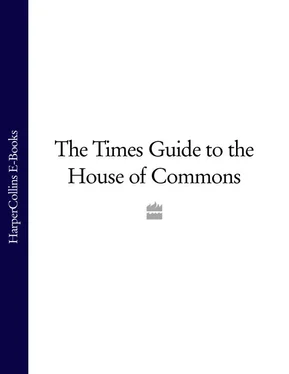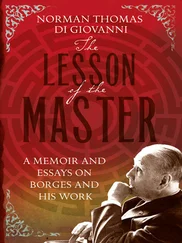Dai Davies, who won a by-election at Blaenau Gwent in 2006 as an independent, was also unable to retain his seat. Even Esther Rantzen failed in her well-publicised bid to oust Labour in Luton South. The former That’s Life presenter stood as an anti-sleaze candidate against Margaret Moran, the Labour MP who claimed £22,500 in Commons allowances to fix dry rot in a second home in Southampton. Ms Moran, however, decided to stand down before the election. Her replacement, Gavin Shuker, a 28-year-old church pastor, won 14,725 votes. Ms Rantzen came fourth with 1,872 and lost her deposit.
Only one MP was left holding the flag for the independents: Lady Sylvia Hermon, a former Ulster Unionist. Lady Hermon stood down from her party in March 2010 after the UUP formed an alliance with the Conservatives. Two months later she romped home to retain her North Down seat as an independent.
Don’t emerge as sounding brass or tinkling cymbal
Matthew Parris
Times columnist
That no MP has yet suffered a heart attack in the minutes before making a maiden speech in the House of Commons, is some kind of miracle. The waiting is the worst. Sitting on those green leather benches, dreading the moment when the Speaker first calls your name, yet longing to get it over with as fast as possible, remains one of the most intense short periods of personal anxiety a man or woman can experience outside warfare.
I have parachuted freefall; aged 10 and dressed in a sailor-suit I have waited to launch into a song-and-dance routine of I Whistle a Happy Tune before a packed house in a repertory production of The King and I , as the orchestra struck up. Neither was as scary as awaiting my Commons maiden speech. But once you are on your feet, and you have your trembling hands and shaking notes under control, and you have started to talk, it is fine. You are away.
For me it went well. In light of what I shall tell you next I can tell you now that my maiden speech was considered one of the best of many maidens from the big and unusually talented parliamentary intake of 1979. That speech was a triumph. It was the rest of my parliamentary career that flopped. After my moment of glory I sank without trace in the Commons, never to resurface.
In all the seven years that followed at Westminster I did not say or do or achieve anything that came anywhere close to the success of that first Commons occasion, my maiden speech. My parliamentary career was undistinguished: for me a bitter if infinitely gentle disappointment. Cleverer new MPs than me, yes, but in time stupider ones too, overtook me one by one.
Why? My slow-burn failure baffled me. What had I overlooked? I wasn’t lazy, crazy, or personally objectionable. Even after I had left I did not really understand. Only during the decades since, decades of thinking about politics as a journalist and commentator, has the truth dawned.
The truth is this: you will never get anywhere in the House of Commons speaking for yourself. You are the representative of people’s interests, or you are nothing. There are, of course, ideals to be championed. There are arguments to be explained. There is policy logic to be pursued on its merits as well as its popular appeal. But, in the end, if what you say within that surprisingly small chamber carries no echo in the big country outside it then you are without point, and with discreet and subtle cruelty the very stones and carpets at Westminster will communicate to you that fact.
“Speaking for myself, Mr Deputy Speaker…” is a phrase that, sought in Hansard’s electronic archive, would doubtless yield a generous harvest of instances. Do not be fooled. Whether they know it consciously or not, the most effective parliamentarians are never speaking mainly for themselves. They are inhabited by a kind of animal understanding of the beast that an MP is supposed to be: of what, in that remarkably large assembly of directly elected persons that with unintended accuracy we call the Lower House, an MP is for.
You, the MP, are there for the herd. You are there to speak for substantial groups of citizens with shared interests or desires. By no means are you there for the majority alone – or, necessarily, at all. You can usefully spend your whole career fighting for minorities. Groups for whom you speak may be beleaguered and outnumbered; but they must be groups. They must need and want a voice. You are their voice; they must respond to your voice, adding theirs; and your fellow parliamentarians must hear the noise. Your voice is your own, but if you are not somebody else’s voice too, the place will not work for you.
You, the MP, are mainly there – not only, but mainly – as a messenger. You bring the message; you frame the message; you may have a talent for phrasing and targeting and marketing the message. You may even improve the message. You may have the skill so to express the message that it gathers force among those you represent. But you are seldom there to create the message, and unless and until it has gathered that force, you are the sounding brass or tinkling cymbal of St Paul’s epistle. In the end the message comes not from inside your head but from outside the walls of Westminster, or it does not come at all. You, the MP, are there to carry it.
“Tribune” is an old-fashioned word whose meaning as we move into a new millennium is in danger of passing from the popular understanding. But if the word is out of date, what it signifies is not. Not for nothing have MPs been classically called the tribunes of the people. Their own beliefs and opinions carry most weight, and sometimes only carry weight at all, when they reflect the beliefs, opinions and interests of significant, numerous or powerful groups among the people who have sent them to Westminster.
Edmund Burke missed the point when he wrote: “Your Representative owes you, not his industry only, but his judgment; and he betrays, instead of serving you, if he sacrifices it to your opinion.” Note the sly old propagandist’s selection of the word “judgment” for the MP’s view, and “opinion” for the elector’s. But in rejecting Burke’s advice I am not making a moral judgment. I am describing a dynamic. In our legislature, arguments born of the personal reflections of individual legislators do not prosper. Arguments carried into the chamber from the country outside do. Burke, in fact, knew that well enough, and in terms of his own personal career fared better articulating the external voice than advancing it within the chamber. The Commons is not really about debate, it is about tug-o’-war; and your pull on the rope is a pull-by-proxy, for those not present.
How do I know this? I can only reply that it is not a matter of constitutional theory, but of experience. There was perhaps one moment during my seven years when I did, flickeringly, understand in heart as well as head what it meant to be an advocate – and I realised even at the time that it was on an arcane, minor and minority issue. I had become greatly exercised by the brutality and pointlessness of sending women convicted of prostitution to prison. In the event (with Robert Kilroy-Silk, then an MP) I managed to persuade my standing committee, and through them the Home Secretary, to change the law and remove imprisonment from the tariff.
Much of my argument was an argument in logic, but to bolster our case I invited the English Collective of Prostitutes to send down to the Commons a bus-load of their members (waiting for them in the Central Lobby I mistook a delegation on another issue from the Catholic Women’s League for my own invitees, displeasing the League greatly) and led them to a committee room in Westminster Hall, where we addressed the other members of my standing committee, and took questions.
Читать дальше












